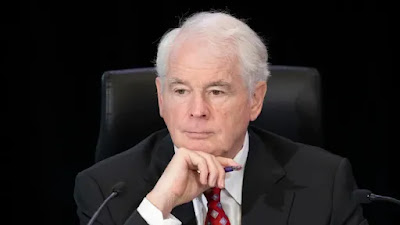Danielle Smith has unveiled her Alberta Sovereignty Act. It really is a piece of work. Jason Markusoff writes:
Premier Danielle Smith's much-awaited Alberta Sovereignty Act more or less delivers on what she promised it would do when she was United Conservative Party leadership candidate Smith a couple months back. It does, indeed, empower Smith's government to order provincial authorities to refuse to enforce any federal law or policy it believes harms Alberta.
In other words, it's similar to the incarnation of her big idea that several of her leadership rivals — including three current Smith cabinet ministers — warned was chaos-inducing, constitutionally problematic, and, in now-Finance Minister Travis Toews' words, "dangerous for the province." Since that now-bygone bit of intra-party tension, Smith has added to her bill the title words "within a United Canada," and a whole lot more.
As was clear before Toews swiped like that at his future boss, Smith's first bill wouldn't automatically nullify, squash or ignore federal laws in this province. It takes the legislature passing a special motion that opines about a specific Ottawa-related grievance, before the new extraordinary cabinet superpower detailed in the bill take effect.
However, the superpowers in the bill are indeed super. And Smith didn't announce several of them until now:
Section 4 of the Alberta Sovereignty within a United Canada Act gives the provincial cabinet the kinglike powers to amend legislation by circumventing the legislature, and all the debates and democratic trappings therein. Once the UCP-dominated legislature approves a resolution that beefs about — say, federal methane regulations for fertilizer — there's nothing in Smith's bill that constrains the secret law-rewriting powers of the premier and her lieutenants.
There's a second extraordinary thing this bill does. It severely limits Albertans' rights to challenge use of the act's superpowers in court.
She's talked about the bill as a "shield" against Ottawa. It also shields her government from its own concerned citizens.
Someone only has 30 days to challenge any decisions or deeds made under the Sovereignty Act. For normal laws, the time limit is six months.
Anybody trying to launch such a challenge also must meet an unusually high legal standard to knock it down. The act also immunizes anybody carrying out this act's provisions from civil liability — cabinet ministers and MLAs, too.
There is a tendency these days for politicians to declare themselves kings or queens.
Image: Jason Franson/The Canadian Press
























